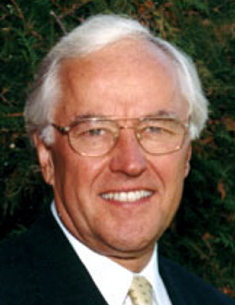AUGUSTA — After 28 years, it’s time to give the governor a pay raise, a veteran Democratic lawmaker told a legislative panel Monday.
Republican Gov. Paul LePage is paid $70,000 a year, less than any other governor in the country, and the salary hasn’t increased since 1987. In 1937, Maine’s chief executive made $5,000 a year, which would be nearly $83,000 in today’s dollars, said Rep. John Martin of Eagle Lake.
“We have actually gone backward,” he told the State and Local Government Committee.
Martin is proposing to raise the governor’s salary to $120,000 a year, which would put Maine on par with states including New Hampshire, Idaho and Mississippi.
Even with the boost, Maine would still lag well behind Pennsylvania, where former Republican Gov. Tom Corbett’s salary was the highest in the country last year, at $187,000, although he didn’t accept the entire amount, according to the Council of State Governments.
LePage’s spokeswoman, Adrienne Bennett, wouldn’t say whether the governor would support the idea. She said the fact that the Maine governor is the lowest paid in the country is something to take into consideration, but she doesn’t know if LePage would think now is an appropriate time for a raise.
Martin is also seeking to increase lawmakers’ pay starting after the next election, from about $14,000 to $24,000 in the first legislative session and from about $10,000 to $17,000 in the second, shorter session. He says that’s necessary to attract good legislative candidates.
But some members of the committee said they’re unsure how they could explain raising their pay to many of their constituents, who are struggling to pay for gas and put food on the table.
“How do you justify to constituents that are living on a fixed income that you are raising your own pay?” asked Republican Rep. William Tuell of East Machias.
The committee also considered proposals to amend the Maine Constitution and lower the age to run for the Legislature and lengthen state senators’ terms from two to four years.
Martin, who recently began his 24th term in the Legislature, wants to get rid of term limits, even though his long reign as speaker of the House was a driving force behind the effort to approve them in 1993.
Lawmakers are now held to four consecutive two-year terms, but many get around that by taking two years off before running again or simply switching back and forth between the House and Senate.
Martin told the committee that he believes term limits put too much power in the hands of the executive branch and lobbyists, who hold the institutional knowledge.
But Rick Bennett, chairman of the Maine Republican Party and a former Senate president, said Martin’s proposal would send the state back to the days when powerful presiding officers “lorded over public policy making, creating an atmosphere of fear and hostility.”
Send questions/comments to the editors.



Success. Please wait for the page to reload. If the page does not reload within 5 seconds, please refresh the page.
Enter your email and password to access comments.
Hi, to comment on stories you must . This profile is in addition to your subscription and website login.
Already have a commenting profile? .
Invalid username/password.
Please check your email to confirm and complete your registration.
Only subscribers are eligible to post comments. Please subscribe or login first for digital access. Here’s why.
Use the form below to reset your password. When you've submitted your account email, we will send an email with a reset code.